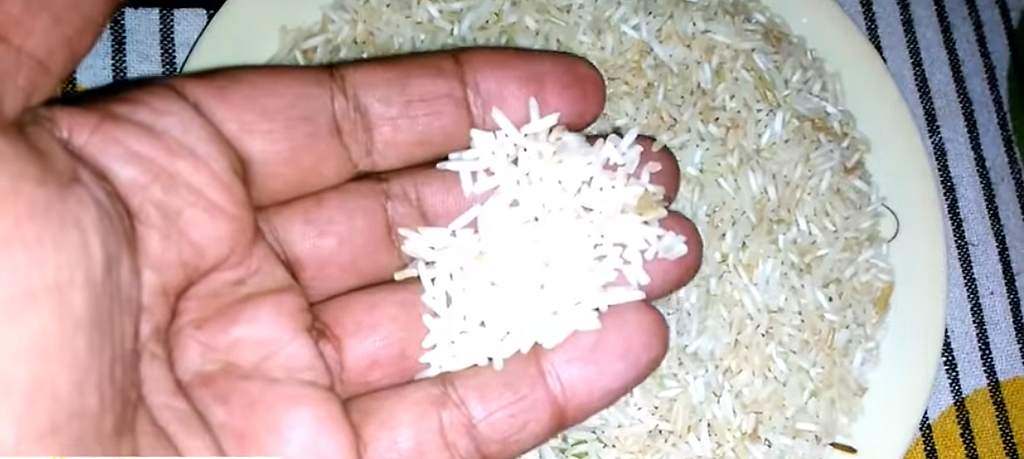Social media posts fuel ‘plastic food’ fears among consumers
Several unsubstantiated reports about plastic food items have prompted authorities to order investigations and even arrest some accused persons in recent months

As you enter the word ‘plastic’ in the YouTube search box, descriptive terms or popular queries such as ‘plastic rice’, ‘plastic egg’, ‘plastic cabbage’ and ‘plastic food items’ start showing up in the suggestion list.
The rumours over plastic food items being sold in India and elsewhere have flooded social media, prompting authorities to order investigations and even arrest some accused persons in recent months.
A man was arrested in Kolkata in March for selling ‘artificial eggs’ and cops arrested over 30 people involved in alleged production and sale of plastic rice and milk in Hyderabad last month.
The food and civil supplies department in Hyderabad collected samples of cooked rice and seized stocks at grocery stores, and sent them for qualitative analysis to a laboratory. This followed several complaints from the Charminar, Yousufguda, Saroornagar and Meerpet areas in June that multiple outlets were selling 'plastic rice'.
A report carried by Deccan Chronicle on June 7 claimed: “Plastic rice being openly sold in Uttarakhand markets.”
On June 9, the Karnataka government ordered probe after unsubstantiated reports about plastic rice, plastic eggs and plastic sugar surfaced on social media.
In Coimbatore, Food Safety and Standards Authority of India officials collected samples of eggs sold in the market in April after reports surfaced of ‘plastic eggs’ being seized in West Bengal. The laboratory examination, however, found that the eggs were safe.
But the Delhi government dismissed the complaint filed by environmentalist Vikrant Tongad to investigate reports of plastic rice flooding the market.
Nevertheless, the scare over plastic food seems to be constantly growing with many social media videos making rounds for the past few years on how ‘plastic rice’, ‘plastic egg’, ‘plastic cabbage’ and several other plastic food items have entered the consumer market.
There are hundreds of videos on YouTube that demonstrate how to identify plastic food items. Interestingly, they blame China for producing and selling these fake food items which are detrimental to health.One such video demonstrates ‘how to identify fake Chinese rice that contain plastic’.
A video dated December 2016, “OMG - Plastic cabbage | Fake Synthetic Cabbage now in Indian market,” carries this description: “Dear friends, I received this plastic cabbage or Synthetic Fake Cabbage Video from my friend; it is shocking, now fake vegetables in Indian market also.”
The video that has been viewed 573,511 times demonstrates how a leaf of a purported cabbage starts melting and burning like plastic when heated on the burner of a gas stove. The demonstrator shows how the leaf after being heated starts breaking like rubber on being stretched and requests the viewers to do the experiment before consuming the vegetable purchased from market.
One can come across dozens of such videos by entering keywords like plastic cabbage, fake cabbage, synthetic cabbage, artificial cabbage, plastic cabbage in Indian market, China cabbage, Japan cabbage in Youtube or Google.
Another video titled, “How China is making artificial cabbage” is also available on YouTube. Uploaded in December last year, it has got 243,803 views so far.
Also, many videos show how plastic eggs are made and how one can identify ‘fake’ eggs. This video shows ‘how to identify a ‘plastic egg’.
This video, “10 FAKE Chinese Foods That May KILL You!” warns visitors against consuming or purchasing ten food items including eggs, walnuts, beef, black and white pepper, honey, rice, rat meat turned into mutton, Tofu (also known as bean curd, a food made by coagulating soy milk and looks like soft white blocks), wine and dumplings.
The social media rumours about fake food have forced even BBC to take note of the issue. A report published by it quotes Hassan Arouni, editor of the BBC's Focus on Africa. He says he's not sure whether people in West African countries are deliberately targeting food exporting countries such as China. But he does think food safety authorities in West Africa are doing the right thing by addressing the rumours head-on, the report adds.
Follow us on: Facebook, Twitter, Google News, Instagram
Join our official telegram channel (@nationalherald) and stay updated with the latest headlines